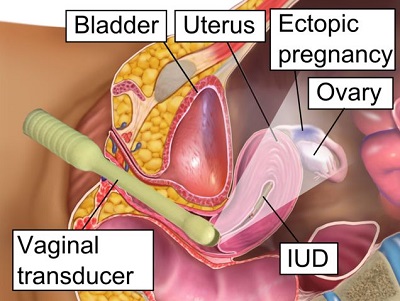Pregnancy can be very frightening for a woman, especially when they are carrying a child for the first time. This mainly happens because they can experience different symptoms which affect their emotions and body. For this reason, it’s important to know about the symptoms that you could experience in the first trimester of your pregnancy.
What Can You Expect During The First Trimester Of Pregnancy?
When you are pregnant, the first trimester will be marked by an amazing and invisible transformation that takes place very quickly. A lot of changes will occur inside your body during these first three months, resulting in many different symptoms. At times you may not know which symptoms are normal or which ones need the immediate attention of your doctor. If you know the physical as well as the emotional changes that you should expect in the first trimester it will be easier for you to cope.
These are some of the common symptoms that you might experience during the first trimester:
Dizziness
You might feel dizzy or lightheaded because pregnancy will cause your blood pressure levels to drop and dilate the blood vessels. You should avoid long standing as this will help to prevent occasional and mild dizziness. If you are feeling dizzy while standing, you can lay on your left side to get relief. Get up slowly after sitting or lying down.
Morning Sickness
This symptom is usually accompanied by vomiting, excessive amount of saliva, and nausea. Most women experience this in the first month. There are some instances when it’s experienced beyond that time. The nausea can be brought on by a rapid rise in the estrogen and progesterone levels, an action that causes the stomach to get empty a lot slower. Your senses will also heighten during pregnancy and various odors from foods, cigarette or perfume might cause bouts of nausea during the first months.
Constipation
You can have problems with constipation during pregnancy because of the excess production of progesterone hormone. This relaxes the intestines muscles and makes it difficult for you to release feces.
Fatigue
This is one of the highly ranked symptoms in the first trimester. The increasing rise in the progesterone hormone levels during early pregnancy could cause you to feel sleepy most of the time. As of such, it is important to consume enough protein and iron. Your daily routine should also include physical activities such as brisk walking.
Tenderness of Breast
The excessive production of progesterone, estrogen and other hormones will cause your breasts to feel tender and swollen. This happens because the hormones are preparing them for breastfeeding.
Mood Swings
The hormonal changes which take place in pregnancy might affect the serotonin levels inside the brain. This could alter your mood at different times.
Increased Urination
During the first trimester, your bladder will be pressured as your uterus grows to give the baby space to grow. This will increase the frequency in which you urinate. This increased urination will stop in the fourth month as your uterus will enter the abdominal cavity.
Food Cravings or Aversions
Certain foods could cause you to turn up your nose during pregnancy. On the other hand, you might crave for certain foods. Like most pregnancy symptoms, the hormonal changes might affect your food preferences especially during the first three months when the changes are significant.
Edema
You could experience swelling in your feet, face, hands, and legs in the first trimester because of excessive amount fluids build up in your body.
In addition to the above, you could experience other symptoms such as anemia, backache, headaches, hypertension, varicose veins, cramping, hemorrhoids, and indigestion.
Now, let’s look at some of the emotional changes that you might notice in the first trimester of pregnancy:
Your pregnancy might cause you to feel happy, exhilarated, tired, and anxious all at once sometimes. You could be very excited about being pregnant, but still the thought of a new baby will bring on some amount of emotional stress.
It is natural and normal to worry about the health of your baby, how you would adjust to being a mother as well as the financial demands which comes with raising a child. During pregnancy, you might also wonder how your baby is going to affect your romantic relationship or the type of parent that you will be. You might also worry about your ability to be productive at work as well as how you are to balance the demands of career and family.
In addition, you might have hesitations and bouts of mood swings or weepiness. During this time, you need to remind yourself constantly that the feelings are normal. If your mood changes are becoming intense or severe, you need to consult a health care provider.
Like some woman, you might experience a few of the above mentioned symptoms or none at all. It’s important to talk to your doctor about any symptom that you are experiencing during the early part of pregnancy in order to remain safe and avoid health problems.



